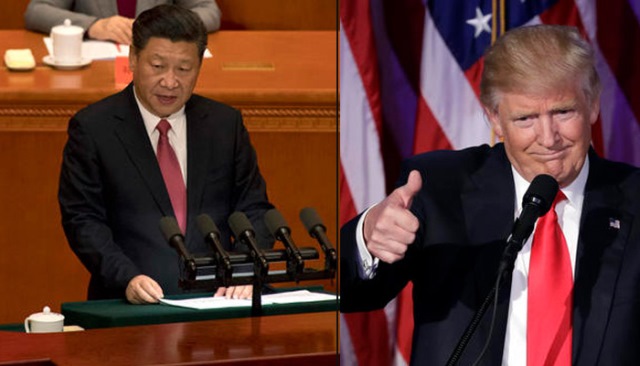The U.S. dollar was little changed on Tuesday, close to a three-week low against the euro, as Washington and Beijing traded barbs and announced fresh tariffs on a growing number of imports.
Beijing retaliated on Tuesday against tariffs imposed less than 24 hours earlier by President Donald Trump on an additional $200 billion worth of Chinese imports, adding levies of its own on $60 billion worth of U.S. goods.
The euro was 0.1 percent higher against the dollar.
The greenback has been a major beneficiary of growing trade-related tensions in recent months, as investors bet it would gain at the expense of riskier currencies.
The dollar index, which measures the greenback against a basket of six other major currencies, was up about 5 percent since mid-April.
Its rally, however, has fizzled in recent weeks as some investors book profits and worry about the longer-term impact of an extended trade war.
“Markets are a little weary and a little tired of the trade headlines,” said Minh Trang, senior foreign currency trader at Silicon Valley Bank in Santa Clara, California.
“Short-term it is a little bit of a positive, but longer-term there is a greater fear of material negative effects to the overall economy,” he said.
Dutch bank ING estimates that 2.5 percent of world trade is now affected by the tariffs and it will reach 4 percent if Trump carries out threats to put levies on all of China’s exports to the United States.
“If it gets to a point where potentially it may be affecting how the Fed looks at overall growth, then obviously that’s going to be a negative (for the dollar),” said Trang.
Traders will be paying attention to next week’s Federal Reserve meeting at which the central bank is expected to raise rates and reveal how many more increases it expects over the coming year.
On technicals, the outlook is cautious for the greenback after the dollar index last week fell below a 100-day moving average for the first time since April.
“Although the fundamental drivers behind the dollars appreciation remain firmly intact, technically the dollar is starting to look bearish on the daily charts,” Lukman Otunuga, research analyst at futures brokerage FXTM in London, said in a note.
The Canadian dollar strengthened against its U.S. counterpart as oil prices rose and domestic manufacturing data supported the view that the Bank of Canada will raise interest rates in October.
The British pound pulled back from six-week highs as traders booked profits and investors struck a more cautious note about progress toward a Brexit deal ahead of a European Union summit later this week.













